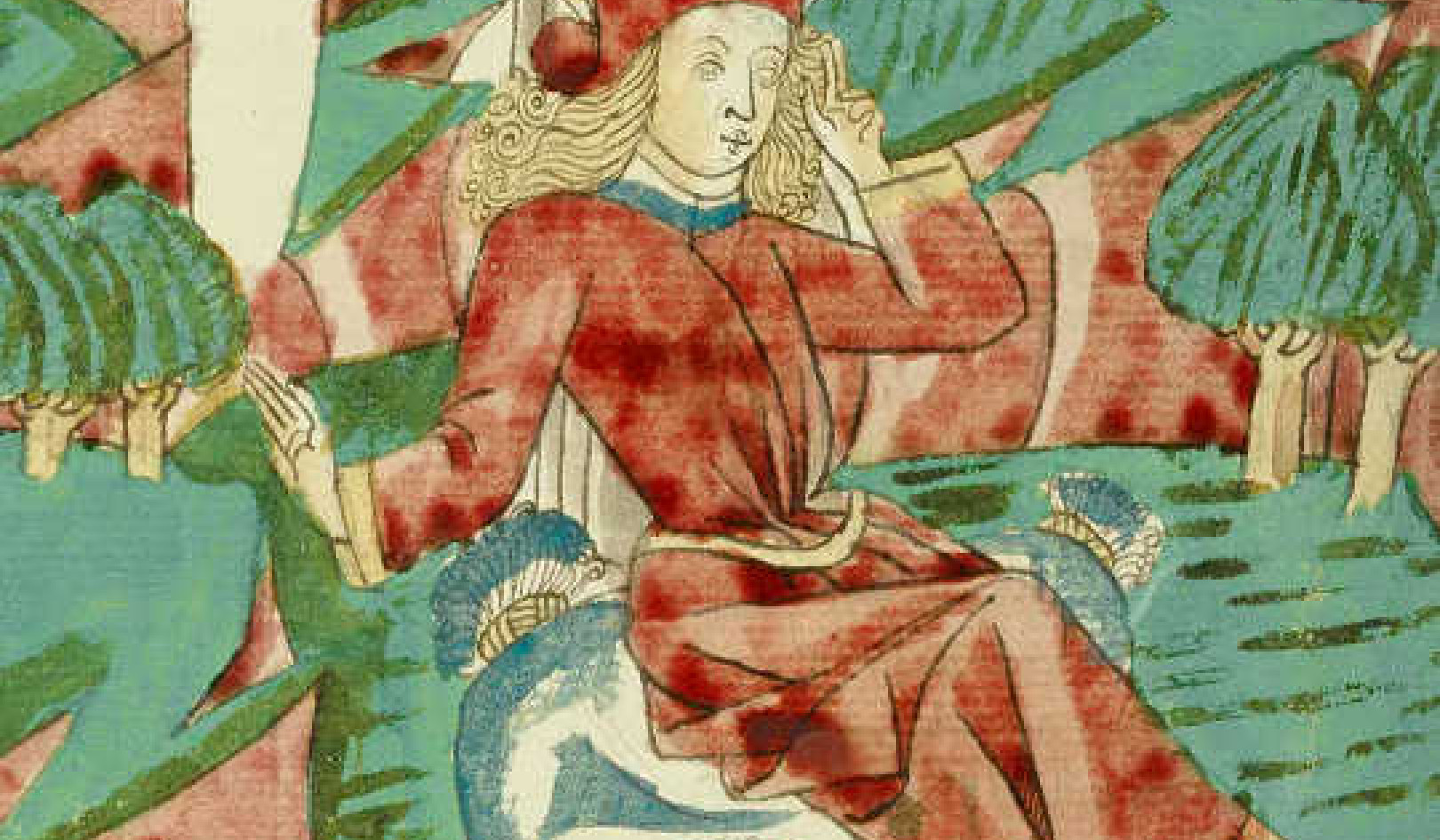
Stated negatively: Do not be intentionally harmful or single-minded in your actions
Kindness towards people means being considerate, friendly and generous. The vision is that all your actions consider the whole.
The opposite to kindness is intentionally causing harm. The Process rewards us for deeds of kindness, and corrects us for deeds of harm. There are always consequences for our actions. This phenomenon is known as karma in many religions and philosophies.
Guideline: Act with Kindness
I use the phrases ‘deeds of kindness’ and ‘deeds of harm.’ To perform a deed, there must be an intention. Rewards and corrections are linked to the intentions, not the fruits of your deeds. For example, if you were to give a homeless person a sandwich, and she threw it back at you complaining about the filling, you’d still be rewarded.
In the same way, if you tried to hurt somebody by saying something unkind, but it had no impact on them, you’d still be corrected. Rewards take the form of pleasant experiences, whilst corrections take the form of suffering.
It’s impossible to achieve your desired results with every deed. However, your intentions are fully within your control, so you can take responsibility for them. Hence the link between intention and consequence. It’s fine for you to have a positive goal or intention, so long as you aren’t attached to the outcome. The kindness guideline title reflects this, through use of the word act with kindness. It doesn’t say achieve results or attach to results.
If you’re kind to someone, and they return the kindness in some way, that’s the result of a process you’ve initiated. The Process often arranges things in that way as a reward, even if you didn’t want anything in return. Sometimes it arranges for you to be rewarded or corrected through people or situations that don’t appear to be linked to the deed. Often, it’s clear to see what previous action caused your correction or reward; and sometimes it’s unclear.
The time taken for rewards or corrections to manifest is unknown. It can take anything from a millisecond to a few lifetimes. Sometimes, there doesn’t seem to be any external rewards for kindness. Instead, you appear to experience pleasant feelings or positive thoughts during the action. The same can be said for actions with an intention to harm. There may appear to be no negative consequences other than unpleasant feelings or thoughts during the action. There will always be consequences in some shape or form, at some point.
I recall times when I’ve experienced serious psychological and emotional suffering as a result of being unkind and harmful in my communication and actions. As painful as they were at the time, these corrections helped me understand the unskillfulness of my deeds.
If you resist the correction, rather than accept it, The Process will continue to apply corrections until you’re corrected. The Process may increase the intensity of the correction, which leads to greater pain. This is why acceptance is so important.
”Ideally, we should accept initial corrections fully;
learning from them, and freeing ourselves from pain in the future.
The best advice I can provide, is to stay very aware before, during and following your actions. The more you do this, the kinder you become. Your body always provides you with feedback in the form of pleasant and unpleasant feelings. The secret is to acknowledge the feedback through awareness and acceptance.
Sometimes, despite your best efforts, you feel unkind regardless of the course of action. People can experience this when they’re in a dysfunctional relationship. It feels unkind to stay in the relationship, and unkind to leave it. You have to do one or the other. Whichever option you choose leads to suffering. This is part of human life. There will always be the potential for suffering where there are attachments. The suffering is created by The Process to bring attachments, and their consequences, to our attention. In these situations, it’s always best to take the path of least harm. The path of least harm is the path of kindness.
The Source of Kindness
When you observe the world in operation, you’ll see that kindness flows abundantly. Kindness even flows at a universal level. The sun has been kind to life forms on the earth for millions of years. Kindness is sourced from the infinite intelligence within The Process. It’s for this reason that kindness is also infinite.
Our intentions always fall somewhere on the Selfishness / Altruism Intention Scale. At one end of the scale are totally selfish deeds. Things that you do purely for yourself, without any consideration for others. At the other end of the scale are totally altruistic deeds. These are kind deeds, with no expectations for yourself.
It’s difficult to say whether deeds can really be at either extreme on the scale. The question over whether totally altruistic deeds are possible has been debated for years. If we understand The Process, we know we’ll always be rewarded at some point for our good deeds.
What I can say for sure, is the greater your alignment, the more likely it is that you’ll act altruistically. When you’re aligned, you make decisions based on what’s right for the whole. This happens when you’re being present, bringing awareness and acceptance into every moment. Even on a local scale, you need to be present to be kind. You need to stay aware to notice that somebody might be upset, and ask if they’re OK. Awareness is essential. And kindness flows out of a state of acceptance. If you’re resisting the present moment, your action will be harmful.
Applying the "Act with Kindness" Guideline
It can be easy to misread this guideline believing you must do things like giving all of your money to charity, leaving your partner so they can be free to meet somebody who will be better for them than you, doing altruistic work and so on. It may be that people will need to do some or all of these things, and that’s fine.
Regardless of what you do, your current life situation is a platform for kindness. It doesn’t matter who you are, where you are, what you’re doing, and with whom. There are always opportunities for practicing kindness and the other guidelines.
Speaking to people in call centers is a golden opportunity to be kind. We should remember that the person on the other end of the phone is a human being with feelings.
I recall a guy ringing me up once, trying to sell me something. He said, “Hello, how are you?” I said, “I’m doing good, how are things with you?” I was genuinely interested in how he was. He said I was the first person that day to ask him how he was doing. He really appreciated it.
If I’m being honest with you, I’ve also been unkind to people in call centers when I’ve been frustrated and angry. That doesn’t feel good. It’s much better all round when people are considerate towards each other. It creates positive energy. It doesn’t take long. You don’t need to stay on calls longer than is necessary. You can be kind quickly.
Hanging out with kind people, and spending time in kind environments, helps you become kinder. The opposite is also true – if you hang out with unkind people, or base yourself in unkind environments, this will increase your chances of being unkind. These are general rules. Common sense tells you there will be exceptions. For example, you may be performing a kind role in an unkind environment. The scenario of a kind doctor called out to treat an injured worker in a slaughterhouse would fit within this category.
There are always opportunities to be kind to yourself, and more often than not, opportunities to be kind to others, and things external to you. Simple things like smiling and saying thank you are wonderful.
I asked friends about significant acts of kindness they’d experienced and observed. Funnily enough, it was the small and simple things they mentioned. One example included a work colleague always smiling and saying hello when she walked into the office. Another example was a friend who rescued an injured sparrow on the road. A man had to stop his van to allow her to move the bird into the hedgerow. He observed what she did and stepped out of his van. He then told her that was the kindest act he’d seen in a long time, and gave her a hug! I’m guessing he then spread that kindness in other ways throughout the day.
One of the magical things about kindness is that it propagates. A small act of kindness is like dropping a pebble into a still lake. It ripples out in all directions.
You can also be kind to things, like plants and objects. I feel kind when I’m watering my plants. When I’m cleaning my bathroom and making it look tidy and sparkling, it feels like I’m being kind to the bathroom. I feel like I’m expressing my thanks and gratitude towards things when I clean or maintain them. Cleaning is a great mindfulness practice.
Spreading the Three Components of Kindness
The three components of kindness (consideration, friendliness and generosity) may be expressed through thoughts, communication, or physical acts. Each of these different channels for kindness are equally powerful, and will create a ripple effect out into the world.
Given how connected we all are through the Internet, kindness can spread thousands of miles without us even leaving our homes or speaking to people. Kindness also spreads through a subtler channel that we cannot yet comprehend. Interestingly, the channels for kindness interact, and promote each other. For example, kind thoughts often lead to kind communication, and physical acts. The reverse is true. Kind communication and physical acts will often lead to kind thoughts. I was definitely kinder whilst writing this chapter. Even writing or reading about kindness is an act of kindness in itself, because it cultivates kindness.
We experience unpleasant feelings when the ego’s active. Feelings like irrational forms of anger, jealousy and anxiety. These, and all the other unpleasant feelings we experience, prevent us from being kind. Sometimes, the unpleasant feelings are needed to trigger change and alignment. They’re gifts from The Process. By bringing awareness and acceptance to these feelings, we allow The Process to heal and guide us.
We’re all works in progress, and sometimes we resist our feelings, no matter how hard we try to be present.
”When you experience repeatable themes of resistance,
preventing you from being peaceful and kind,
consider investigating them.
You might choose to get help from friends, or support from a therapist. It can be beneficial to do some reflection and analytical thinking, to help you get closer to the truth of what’s going on. This will place your mind in a stronger position to accept the situation. Use relative acceptance through analysis of the situation; and absolute acceptance of the specific feelings as they arise.
The root causes for irrational unpleasant emotions will always be old pain that you have stored within your body. A substantial part of practicing kindness is taking responsibility to heal this pain through awareness and acceptance.
Copyright 2019 by Darren Cockburn. All Rights Reserved.
Publisher: Findhorn Press, an imprint of
Inner Traditions Intl. www.innertraditions.com
Article Source
Living a Life of Harmony: Seven Guidelines for Cultivating Peace and Kindness
by Darren Cockburn
 The author explores how the 7 easy-to-practice guidelines help us gain a deeper understanding of the universal process of life, as well as provide a set of tools to help us deal with life’s ups and downs more skillfully. They enable us to face life empowered and confident, peacefully observe and accept what life presents us with, cultivate compassion and kindness, as well as spread mindfulness to those around us. Practiced together, these guidelines provide a simple yet powerful compass to guide you to a peaceful mind and harmonious living, much needed in today’s world.
The author explores how the 7 easy-to-practice guidelines help us gain a deeper understanding of the universal process of life, as well as provide a set of tools to help us deal with life’s ups and downs more skillfully. They enable us to face life empowered and confident, peacefully observe and accept what life presents us with, cultivate compassion and kindness, as well as spread mindfulness to those around us. Practiced together, these guidelines provide a simple yet powerful compass to guide you to a peaceful mind and harmonious living, much needed in today’s world.
Click here for more info and/or to order this paperback book. Also available in a Kindle edition.
About the Author
 Darren Cockburn has been practicing meditation and mindfulness for over 20 years, studying with a range of teachers from different religions. As a coach and teacher, he has supported hundreds of people in meditation, mindfulness, and finding a connection to spirituality, with a focus on applying spiritual teachings in everyday life to cultivate a peaceful mind. Darren is also the author of Being Present. Visit his website at https://darrencockburn.com/
Darren Cockburn has been practicing meditation and mindfulness for over 20 years, studying with a range of teachers from different religions. As a coach and teacher, he has supported hundreds of people in meditation, mindfulness, and finding a connection to spirituality, with a focus on applying spiritual teachings in everyday life to cultivate a peaceful mind. Darren is also the author of Being Present. Visit his website at https://darrencockburn.com/

























